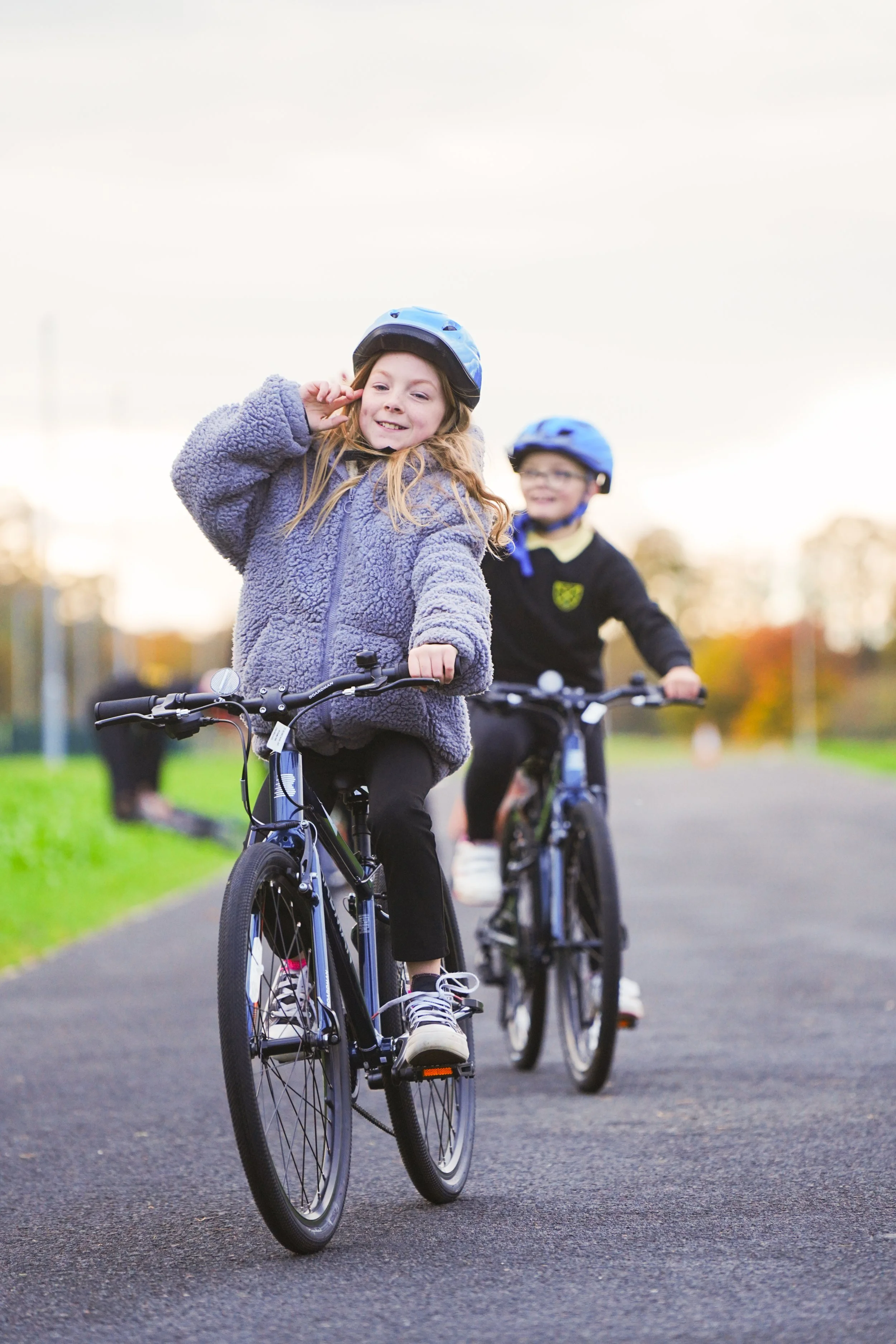50 organisations say get more people walking, wheeling and cycling: 2026 election manifesto
Call to maintain momentum through increasing national investment in active travel, to support healthier communities, create thriving local economies and to save lives on Scotland’s roads
50 organisations* from across Scotland have come together to urge all political parties to enable more people to walk, wheel or cycle, ahead of the run up to the 2026 Holyrood election.
The ‘Joint Active Travel Manifesto for 2026’, supported by a range of health, environmental and road safety organisations, calls for parties to commit to multi-year budgets, link public transport and improve road safety, in order to build on ongoing success and bring the benefits of walking/wheeling and cycling to more people.
From helping to reduce Scotland’s carbon emissions to improving public health and supporting local economies, the manifesto highlights some of the many benefits that active travel brings, calling on parties to pledge to support five key commitments on continued national investment, long-term funding, infrastructure, linking active and public transport, and creating safer streets:
Investment: provide long term investment to transform our local high streets and communities, committing at least 10% of the transport budget to active travel funding.
Long-term commitment: Multi-year budgets to accelerate delivery of national strategies on walking/wheeling and cycling, offer better value for money and give more people access to active travel regardless of income and background
Infrastructure: Transform our communities, enabling anyone, especially younger people – _to travel more safely on foot, by wheeling or by bike. Including through well maintained, accessible networks of walking or cycling routes and reorganised street space, creating better, greener local places
Link active and public transport: Integrate walking and cycling infrastructure with public transport in rural areas especially, to provide alternatives to the car. Reducing congestion for all and effortlessly linking longer journeys.
Safety: Reduce road danger by reducing traffic speeds in our communities, by taking dangerous drivers off the road and by creating more accessible streets for all: implementing the pavement parking ban, reinforcing the new Highway Code and making welcoming spaces everyone can use and enjoy.
Research shows widespread support for improvements in Scotland, with a clear majority (62%) of people supporting increased dedicated space for cycling in their area, while Living Streets’ Pedestrian Pound report indicated nearly half of people walk to the shops for everyday necessities several times a week. Data recently published by Sustrans also highlighted the strength of support from Scotland’s children, with 84% of children wanting more traffic-free paths and quiet routes for walking/wheeling and cycling, and 77% supporting more dedicated cycle paths. Paths for All's attitudes survey further emphasised these priorities, showing 91% of people rate feeling safe if walking or wheeling alone as important.
Increased national investment in active travel was supported by all major parties at the 2021 Holyrood election, with record levels of investment leading to impressive increases in walking, wheeling and cycling where projects have been delivered, including the South City Way in Glasgow, and national walking levels increasing in the past decade. Sadly it’s not all good news as 12 people are killed or seriously injured while walking, wheeling or cycling every week and more action is needed to keep people safe and reduce danger at source.
Devi Sridhar is Professor and Chair of Global Public Health at the University of Edinburgh and author of ‘How not to Die too Soon’. In support of the manifesto, Professor Sridhar said: “A move towards active travel isn’t about banning cars, but rather increasing options and freedoms for people to choose how they want to go to school, work or city centre, whether it’s walking, cycling or public transport. Getting people moving in their daily life should be a high priority for governments given that sedentary behaviour is a major risk factor for chronic disease such as diabetes, cancer, heart disease, stroke and dementia. Exercise also contributes at a cellular level to better mental health.
“Scotland has made positive steps in the right direction, but we still have a long way to go to catch up with major European cities who have built active travel into urban design”
Rose Marie Burke and John Newman, the parents of Emma Burke Newman who was killed while cycling in Glasgow City Centre in 2023, said: "In the name of Emma and all our children killed on the road, let's do all we can to avoid needless death, trauma, suffering, and costs to society."
* The Joint Active Travel Manifesto for 2026 is supported by the following organisations:
Aberdeen Cycle Forum
Angus Climate Hub
Bike For Good
The Bike Hub
Blackford Safe Routes
Borders Greenway
Brake, the road safety charity
Broadford & Strath Community Company
ByCycle – Perth & Kinross Cycle Campaign
Chest Heart & Stroke Scotland
Clackmannan Development Trust
Critical Mass Edinburgh
Cycle Hub
Cycling Dumfries
Cycling Killearn
Cycling Scotland
Cycling UK
Cycling Without Age Scotland
Drumchapel Cycle Hub
Dundee Cycling Forum
Dundee Dragons
Edinburgh Festival of Cycling
Edi.bike
Faculty of Public Health
FEL Scotland
Get Glasgow Moving
GoBike – The Strathclyde Cycle Campaign
Glasgow Eco Trust
Greener Kirkcaldy
Highland Cycle Campaign
InfraSisters
Kidical Mass North
Lanarkshire Climate Action Hub
Lang Toun Cycles
Living Streets Edinburgh
Living Streets Scotland
Pedal on Parliament
Play Scotland
Porty Community Energy
RoadPeace
Recyke-a-bike
Scottish Cycling
Scottish Community Link Worker Network
Scotways
Spokes – _The Lothian Cycle Campaign
St Andrews Space for Cycling
Sustrans
The Bike Station
Sustainable Kirriemuir
Transform Scotland
Transport & Health Science Group
Voluntary Health Scotland
Walking Scotland
Women on Wheels


